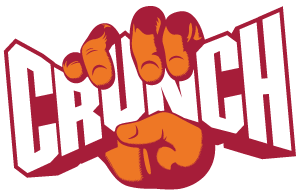While exercising regularly and eating nutritiously are the core fundamentals behind losing weight, they’re only two of countless factors that may be at play in your weight loss journey. There are often a number of feasible reasons why you might be struggling to lose weight.
To help you pinpoint what might not be working for you, we’ve broken down a handful of the main reasons into easy questions you can ask yourself (and thrown in heaps of easy tips for you to incorporate into your current routine).
A small tweak might be all you need to boost your progress. Let’s get started!
Lifestyle
What do you do for work?
Do you sit at a desk every day? An overly sedentary lifestyle will absolutely make it harder to lose weight.
Whilst we’re not suggesting you quit your day job, there are plenty of ways you get a bit more movement into your day. A simple walk before and after work will help to get the blood flowing, and if you can fit it in, a quick stroll during your lunch break.
These three short 10-minute sessions quickly add up to an increase of 30 minutes per day! Every bit counts, even gentle incidental exercise like walking, so it’s well worth switching up your routine to include as much movement as you can.
How hard do you party?
You’ve spent the week hitting your macros in the kitchen and smashing your lifts in the gym, only to come to Friday night happy hour, where even just a couple of drinks can hinder your progress; both through the rapid intake of calories but also due to the negative effect alcohol has on sleep quantity and quality.
Completely abstaining is an option for some, but we understand it’s not for everyone!
Opt for lower-calorie options, like a low-carb beer, or switch to spirits and zero-sugar soda. Aiming for a small reduction in weekly standard drinks is also well worth a try, as you will only see an improvement in your mental and physical health.
Are you consistently following a routine?
This doesn’t mean you have to operate with militant precision every single day, but a weekly schedule that keeps the sleep/wake cycle, meal timing and regular exercise roughly at the same time each day will aid your body in performing at its best, even in a caloric deficit.
Going so hard in the gym on a Monday that you need until Friday to recover might indicate that you need to slow down and take your workouts at an intensity that is manageable within your limits.
A gentle or medium session, three times a week, is better than one all-out session. Find your exercise volume and stick to it for several months. See if you’re getting tangible results at that pace before increasing.
How stressed are you?
Our modern lives are stressful, you don’t need us to tell you that. But an overwhelmingly high level of stress could be sabotaging your weight loss goals.
Whether it be financial, emotional, situational or chronic, the sneaky physiological effects of stress can wreak havoc on the body. Inflammation, fatigue and insomnia are common symptoms, not to mention weight stubbornly sticking around, even when you’re doing everything else right.
We recommend taking stock of your general lifestyle stressors, culling what can be removed, and applying practical skills like mindfulness or meditation to gently deal with the things you might not be able to fix straight away.
If you’re struggling with your mental health, restorative exercise like yoga can be wonderful at helping to regulate your nervous system, without taxing your body as much as an intense workout. Sometimes, a gentle approach is needed throughout different periods of our life. There’s no shame in taking it easy when you need to.
How’s your recovery?
The word ‘recovery’ gets thrown around a lot in the fitness space. You might be led to believe that you’re failing unless you take daily ice baths and bask in red-light saunas. (Hint: don’t listen to those people).
Though these activities are fantastic bio-hacking tools, they are by no means necessary to meet your recovery requirements. Simply put, recovery is the physical and mental restoration required to be able to perform again. So it’s not during the actual exercise or activity itself that lets you get fitter, faster, or even stronger. It happens during the recovery phase.
Focus on the 3 Rs and you’ll be set:
1. Rehydrate
Rehydration is always necessary, regardless of the type of exercise you have undertaken (and especially important if you have lost your body weight in sweat thanks to a HIIT/spin class).
Just drink an extra glass of water or two after your session anyway. Your body will thank you for it.
2. Refuel
Eating a meal right after you’ve slaved away to burn those calories might seem counterintuitive to your weight loss aspirations, but we assure you that aiding your body’s recovery is vital and absolutely in line with those long-term goals.
You’ll want to replenish your muscle’s energy stores with quality carbohydrate intake and repair your muscles with sufficient protein intake. This doesn’t mean you need to smash a mythical post-workout shake within the first hour. Just aim for a healthy meal within a couple of hours to kick-start the repair process.
If you’re calorie tracking, then these calories still count towards your daily total (just like any other food you consume would). This is simply about nutrient timing, rather than adjusting the quantity of your daily food.
3. Rest (Passive vs. Active)
When it comes to passive rest, sleep is profoundly important for your physical and mental health, (especially if you’re taxing your body multiple times per week with hefty workouts).
You should be aiming for 7-9 quality hours of sleep per night. Easier said than done, but if you’re often feeling sore and fatigued, it’s a sure sign that you’re not getting enough beauty sleep.
It can be as simple as setting a wind-down alarm in the evening to start the relaxation process. Try dimming your lights and reducing or eliminating screen time altogether; swap your nightly Netflix binge for a good book instead.
In terms of active recovery, this might look like dedicating a full day of active rest, including a gentle walk, a yoga class, or a swim. For others, this may look like a couple of minutes of foam rolling after a workout and a quick stretch before bed.
There is no one-size-fits-all approach, and as with most lifestyle changes, you may find you can slowly incorporate more into each day/week/month as your fitness journey progresses.
Do you have any pre-existing health conditions?
There are just some things you can’t change, and your genetic makeup is one of them. Your genes (not jeans) could be playing a role in your current struggles with weight loss.
Biological gender dictates that males will find it easier to lose weight more quickly than females. Additionally, weight loss slows down with age. Several health conditions like PCOS, diabetes and hypothyroidism can affect your hormones and blood sugar levels, which could easily be causing a weight plateau.
Weight gain is an unfortunate, yet unavoidable side effect of many medications, and whilst it’s always worth asking your doctor if any changes can be made to reduce the impact on your physiology, it’s essential to be kind and compassionate with yourself. Book in to see a GP, and work realistically within your current circumstances.
Nutrition
Are you tracking your calories?
The only way to achieve weight loss is through a calorie deficit, which can often be tricky to pinpoint if you aren’t tracking your meals.
Calorie tracking isn’t for everyone, and it certainly isn’t a long-term way of living, but it is often necessary to understand the energy contained in your food, especially if you are struggling with weight loss and don’t know how to proceed.
There are a multitude of smartphone apps that make this super easy and convenient, and you might just be surprised with how many (or few) calories your favourite foods contain. A safe and healthy daily deficit can be as small as 300 calories for some people, but check with your GP before deciding whether a caloric deficit is right for you.
It’s surprisingly easy to achieve through a slight increase in exercise, healthy ingredient substitutions within your current meals and slightly reduced portion sizes. These three tips alone will get you well on your way to shedding the kilos, without the need for any dangerous measures.
We never recommend completely skipping meals, starving yourself for extended periods of time, cutting out entire food groups (i.e. carbs), and hours of daily cardio. If you regularly find yourself employing these tactics in a bid to be more lean, we highly suggest you reach out to the eating disorder counsellors at the Butterfly Foundation. Recovery is absolutely possible, and we’re here for you in any way we can be.
Are you over-eating?
This is a pretty commonly overlooked area, especially when you’ve made a few healthy substitutions. Unless it’s veggies (near impossible to over consume, so go nuts here), you will still need to be mindful of the quantity of food to ensure you are not overeating at each meal.
This is where tracking is helpful, along with adjusting your mindset around why you are eating. You might find yourself eating out of habit, boredom or for comfort, all of which are not genuine hunger.
Making cleaner food choices is the number one way to improve your health and achieve your weight loss goals, but it’s still easy to over-consume calories if you aren’t mindful.
Servings of nutrient dense whole foods, like avocados, greek yoghurt, nuts and peanut butter can rapidly add up in calories if you’re not paying attention. This isn’t to demonise these healthy foods, nor should you avoid them, but it’s simply about treating them just like any of your foods and tracking accordingly, until you’re settled with correct quantities for your goals.
Are you hitting your macros?
Hitting your macro targets with each meal and/or daily is essential when it comes to consistent progress. The specific ratios vary from person to person, so we recommend getting in touch for a personalised plan.
Generally speaking, at least 0.8g per kg of bodyweight of quality lean protein should be prioritised for muscle growth and repair, along with healthy fats for satiety. Last, but not least, you should be adding complex carbs to support energy production.
A diet full of varied fruits and vegetables will aid in getting in all your vital vitamins and minerals. Reduce reliance on prepackaged meals and snacks, no matter how “healthy” the packaging looks. Chances are it’s calorie laden, full of sugar, salts and preservatives.
Are you yo-yo dieting?
Diets don’t work. Here’s why: they are normally unrealistically reactive (which may lead to short term weight loss), and they’re unsustainable. You might fall into your previous habits again, and your weight will return just as fast as it was lost.
Sound familiar? Don’t beat yourself up, we’ve all been there.
That’s why we recommend healthy lifestyle changes that are attainable and most importantly safe. This isn’t to necessarily throw movements like Intermittent Fasting or Keto under-the-bus, but going to such drastic measures just isn’t necessary to achieve a simple calorie deficit. So, skip the next celebrity fad and stick to your healthy whole foods meal plan instead.
Are you drinking enough water?
We’re talking several litres per day. Probably not? That’s okay! At first, this can seem like A LOT, but just like anything, it’s easiest to start with just a small step. Or in this case, a small glass of water, first thing in the morning.
Other than rehydrating your body after a good night’s rest and kickstarting your metabolism for the day, a quick sip of H2O will help chip away at the total daily fluid goals. A seemingly insignificant morning action can really reap benefits by the end of the week.
We’re sure you’ve heard of the good old ‘8 glasses a day’ adage, which is a little on the low side if you ask us, but it’s a good start. Whilst you can technically count any of the fluids you drink (tea, coffee, juice, soft drink etc) to get the sum total of your intake, we recommend you get your pure water in as a priority and count the rest as a bonus liquid.
As with any new habit, it’s vital to find out what works for you. That might mean an hourly alarm to get up and grab a glass, or it might mean carrying around a giant 2.2L water bottle with you everywhere you go.
Experiment, tweak your environment, and keep trying till you find something that just clicks.
Exercise
What type of exercise do you do?
We all know there are a multitude of ways of working out, with no one single ‘best exercise to lose weight’, despite the many fads floating around social media today.
Why is this the case? Because the best exercise regime is one that works for your individual needs, your current level of fitness, your unique lifestyle and most importantly what you enjoy.
No matter how ‘perfect’ a workout routine may be, if you hate it, human nature dictates that you won’t stick to it. You may despise running but love lifting weights, or simply enjoy taking a HIIT class to get those endorphins flowing.
You will only know if you try, so our wide selection of personal trainers can help get you started or help you switch it up if you’re finding yourself stalling on your progress.
That being said, if you’re looking for the most efficient workout, short bouts of high-intensity exercise that boost your heart rate followed by short rest periods is going to burn the most calories in the shortest period of time.
Community
Do you have a solid support system?
We pride ourselves on having a wonderful Crunch Community, both inside our gyms and our online community. Having a sense of belonging and most importantly a group of people that are aligned with your values and goals can make or break your fitness journey.
Relying on the support of others when you’re not feeling your A-game and conversely, being able to motivate someone else to step it up, really boosts morale all round.
Be sure to join your local Crunch Facebook page to keep up-to-date with the happenings, connect with your tribe and maybe find yourself an accountability buddy!
Have you set sustainable goals?
A theme we’ve repeated throughout this article is the often-overlooked importance of sustainability. Before attempting to undergo any substantial lifestyle shift, a change in your mindset is vital to ensure success.
Part of that change is committing to your health as an ongoing, long-term factor, and not quitting your efforts too early, being inconsistent with your nutrition and exercise, and not waiting to see changes will inevitably lead to frustration and poor self-esteem.
If you have a substantial amount of weight to lose, you could be looking at years to achieve this, not just a ’28-day challenge’. Choosing a realistic time goal enables patience, and for you to also look back at how far you’ve come already.
Similarly, it’s important to not desire to lose an unhealthy amount of weight, which is often the case when you pick an arbitrary clean number like a goal weight of “70kg”. It’s far better to reassess how you’re looking, feeling and performing at each 5kg milestone, rather than obsessing about constantly getting smaller.
And never forget, slipping up or making a mistake doesn’t, in any way, make you a failure. There is no need to ‘wait till Monday’ to start again; the very next meal is an opportunity to get back on track. Plus, there’s always tomorrow to fit that gym session in.
So what’s next?
There you have it, a list of some of the common (yet hidden) reasons why you may be struggling to lose weight.
As tempting as it may be, we fiercely recommend you stay away from anyone or anything, whether it be an influencer, restrictive diet or regime, promising a radical and rapid transformation. These kinds of quick fixes just aren’t realistic.
Instead, we suggest a compassionate reframing of your mindset to view this journey as a lifetime commitment. It’s about truly sticking at it and refining your habits as time goes on to see a change in the long run.
Concentrating on controlling what you can within your daily lifestyle to achieve a healthy calorie deficit through diet and exercise will see your weight loss journey progress in a safe and sustainable manner.
And rest assured, our Crunch Fitness professionals are always here to help you along the way, wherever you’re at in your journey.
Want a FREE GYM SESSION!?
Hit the link below to receive your FREE GYM PASS to your nearest CRUNCH Gym!
👉🏻 CLICK HERE
References
- https://www.health.gov.au/health-topics/physical-activity-and-exercise/physical-activity-and-exercise-guidelines-for-all-australians/for-adults-18-to-64-years
- https://drinkwise.org.au/drinking-and-you/facts-about-drinking-that-will-keep-you-up-at-night/#
- https://www.healthdirect.gov.au/stress
- https://exerciseright.com.au/what-is-recovery/
- https://www.webmd.com/diet/obesity/ss/slideshow-weight-gain-conditions
- https://butterfly.org.au/
- https://dietitiansaustralia.org.au/health-advice/protein#:~:text=Approximate%20protein%20requirements,kilogram%20of%20body%20weight%2Fday
- https://www.healthdirect.gov.au/drinking-water-and-your-health
- https://www.healthline.com/nutrition/benefits-of-hiit#benefits


Crunch Fitness Virtual Assistant
 I'd like some help reaching my Fitness goals!
I'd like some help reaching my Fitness goals! I'm an existing member and would like some help!
I'm an existing member and would like some help! I have some questions about becoming a Crunch member!
I have some questions about becoming a Crunch member! AU
AU United States
United States Canada
Canada Costa Rica
Costa Rica Spain
Spain Portugal
Portugal NSW Clubs
NSW Clubs VIC Clubs
VIC Clubs